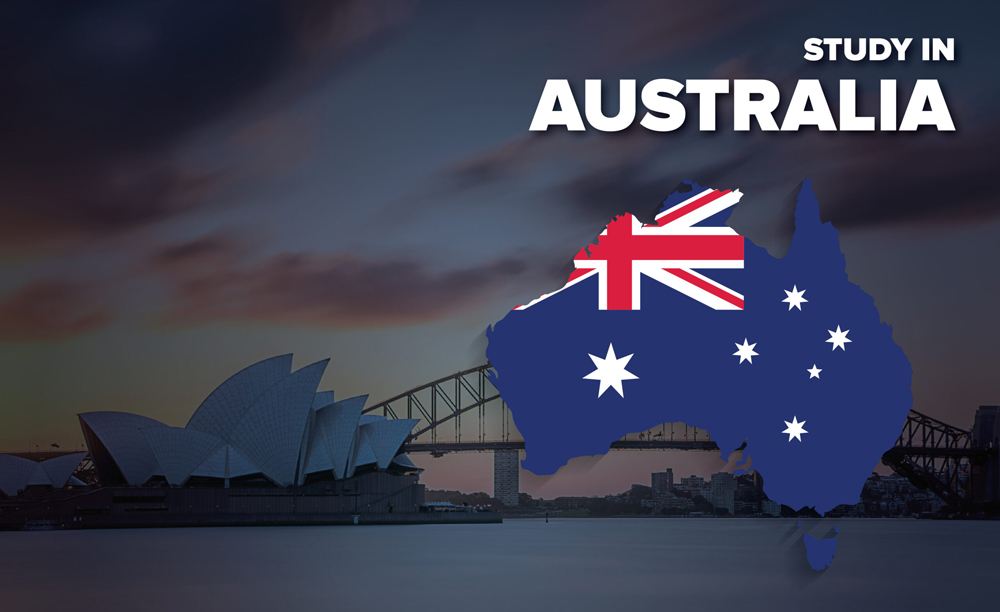The fact that Australia has such a vibrant culture and diversity in the education sector has made it one of the preferred study destinations for students from all over the world. Due to its multiculturalism, Australia has been able to be more welcoming and friendly toward international students, who have the opportunity to make friends with people from diverse backgrounds, political viewpoints and religious inclinations. It is a paradise for foreign students to study in Australia thanks to this diversity as it gives them a homey feeling rather than a sense of alienation. Australian cities are among some of the least crime-ridden in the world, which is another reason why international students opt to study in Australia because Australia is known for being a safe place with a sense of security and freedom.
There are many reasons why Indian students would be interested in studying in Australia, including the quality of education, a wide variety of courses to choose from, and the wide range of employment opportunities. A variety of scholarships, safe and diverse environment, as well as one of the world's most beautiful scenery is what makes Australia a world-wide international student friendly nation.
A brief overview of Australia's education system:

Australia is the hot topic of discussion nowadays among international students looking to study abroad. Australian universities and institutions are becoming more attractive to Graduate and Undergraduate students. There are 7 universities in Australia that rank in the top 100 institutions in the world, making Australia a place you should consider when planning your higher education. Prior to that, let's examine Australia's Education System.
If you are an international student looking to study in Australia, you will most likely begin your journey after you have completed your schooling among the below listed degrees. Educational titles are awarded both by the public and private sectors at six levels.
1. Certificates 1-4
These courses are referred to as certificate courses and do not have a fixed duration. Most of these courses teach basic skills and knowledge, and are mostly vocational in nature. Many of the courses at private colleges and colleges of further education are offered by TAFE (Training and Further Education) colleges.
What is TAFE? Offering certificate, diploma, and associate diploma courses; Training and further education usually offers vocational and skill-based training. A few TAFE institutes in Victoria offer higher level academics as well. Colleges and universities can be called by different names depending on where they are located (state or territory) These educational institutions are mostly owned and run by state and local government.
2. Diploma and Associates Degree
Generally, these courses, Diplomas and Associate Degrees, require between 2 to 3 years to complete. Courses in diploma programs are more focused on technical skills, while courses in associate degree programs are academic in nature. In most cases, diploma courses are equivalent to two years of undergraduate study. There are several universities as well as TAFE, Community centres, and private RTOs (Registered Training Organisations) that offer these courses.
3. Bachelor Degree and Honours
The degree is recognized around the world as the standard university qualification. The programs normally last between three and four years. On completion of the degree, or upon completion of a thesis or research project, an honours degree is awarded. Although traditionally, bachelor's degrees have been issued largely by universities, TAFEs and private institutions can also provide an equivalent degree. In the same league as these are Graduate Diplomas and Graduate Certificates.
4. Master’s Degree
In Australia, a master's degree is studied after a bachelor's degree and sometimes an honours degree. To study a master's degree requires two years of study following graduation. There is also some academic work and research involved during this period. This is usually provided by universities. The title "Doctor" is permitted for candidates with a master's degree in dentistry, medicine, or optometry.
5. Doctoral Degree
This is the most prestigious degree one can earn in Australia. It is permitted to use the title "Doctor" for people who have earned a doctoral degree. Usually, it involves a master's degree or an honours degree in a specialized subject. Research-work or a thesis on a particular subject will be required of candidates, experts in a field. The degree of professional doctorate is achieved through a project, not a thesis. They are typically awarded by universities.
High Ranked Universities:
A total of 43 universities exists in Australia. Among them, 40 are public universities. There are other two universities that primarily cater for international students. The last one is a private specialty university.
There are eight highly specialized research-intensive universities known as the Group of Eight. These universities are among the best in Australia, and in the world. They are:
|
Name of the University
|
Rank
|
| 1. Australian National University | 20 |
| 2. The University of Melbourne | 41 |
| 3. University of New South Wales | 45 |
| 4. University of Queensland | 47 |
| 5. The University of Sydney | 50 |
| 6. Monash University | 60 |
| 7. The University of Western Australia | 93 |
| 8. The University of Adelaide | 109 |

Popular Courses
Choosing a major and a degree for yourself will be your biggest decision when you start college. Despite the tendency for students to change majors during college, the employment opportunities and potential for career development in the global economy determine which majors are the best choices. As important as it is to choose a degree in which you are truly interested and believe you will be working in a related field once you graduate, you should also know what the most in-demand degrees are so that your chances of finding a job increase naturally upon graduation. Listed below are the most popular and future-based majors:
- Information Technology and Information System
- Computer Engineering
- Mechanical Engineering
- Civil and Structural Engineering
- Planning and Architecture
Below lists the Best Places to Study Abroad in Australia
Studying abroad in Australia is the best option for students looking for a unique overseas experience in a land of cuddly koalas, pristine beaches, and bustling towns. In terms of being home to some of the best educational institutions as well as offering international students the best living conditions, Australia has some of the best cities in the world. Among the cities, Melbourne has made it 7 times in a row as the most livable city in the world and Adelaide, Perth and Sydney in top 20 in terms of health and care, infrastructure, education, stability, culture and environment.
- Melbourne
- Canberra
- Perth
- Adelaide
- Sydney
- Brisbane
With the exception of Sydney, Melbourne, and Brisbane, most of Australia's other cities are designated as regional cities, and students who choose to study in them can benefit from special scholarships, additional PR points, and the opportunity to extend their stay in the country after graduation.
Cost of Education in Australia
There are different costs associated with studying in Australia depending on the type of degree that you wish to pursue, such as a diploma, bachelor's, master's or doctorate. It also varies when it comes to the ranking of the university. For undergraduate and postgraduate courses, the average cost of studying in Australia is approximately A$ 24000 - A$ 36000 per year.
Qualifying Exams & Coaching
Australian universities are known for their world-class quality education, safe and secure environment, and favourable immigration policies, which have all contributed to the growing number of foreign students aspiring to study abroad. There have been a number of initiatives by the Australian government to facilitate international students' education in Australia and relax visa policies for international students which have led to an increase in foreign students choosing Australia as their desired destination. Australian government’s efforts and the optimistic approach it takes towards international students explain why Australia has become a popular study destination for students from all over the world.